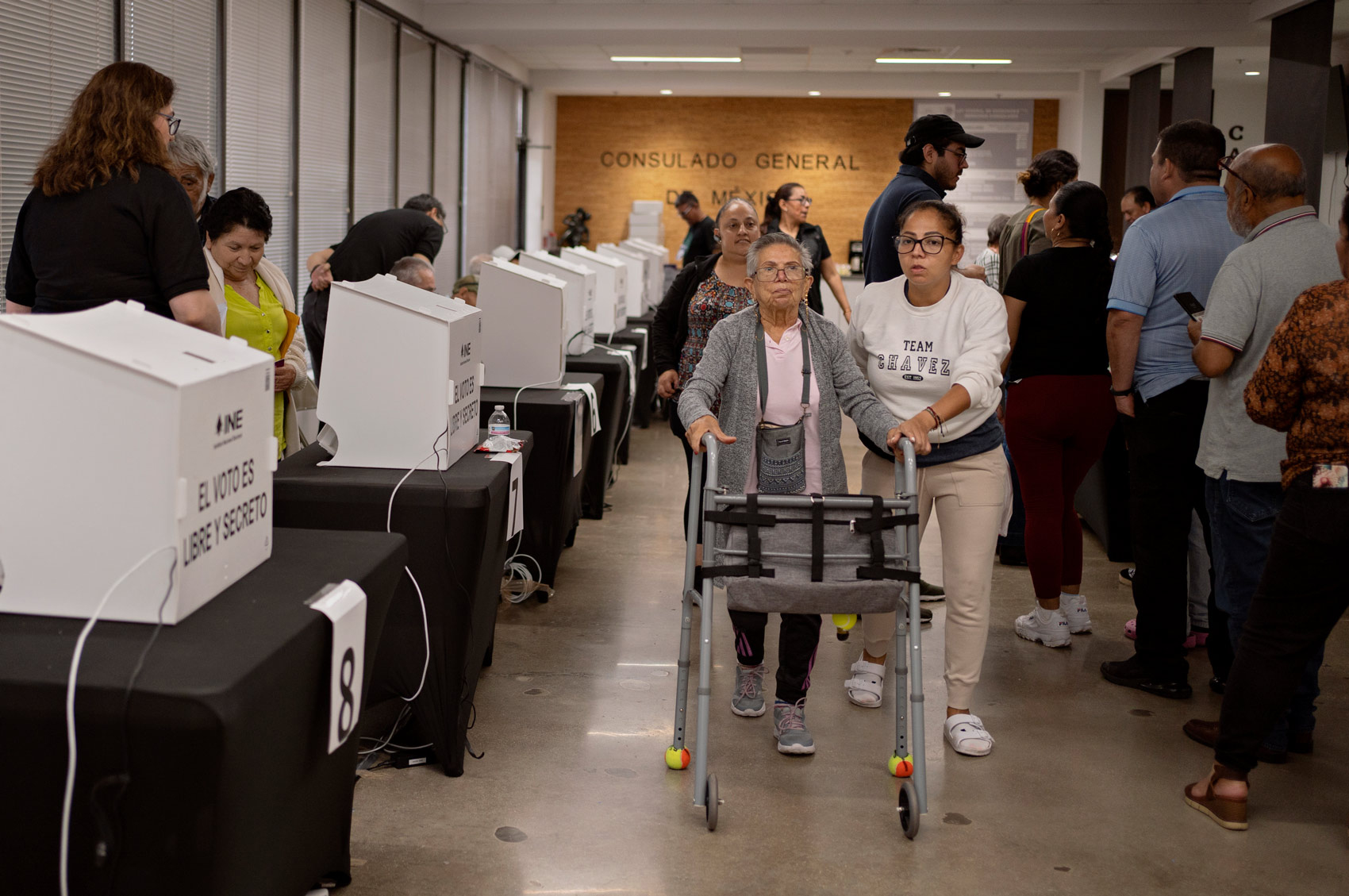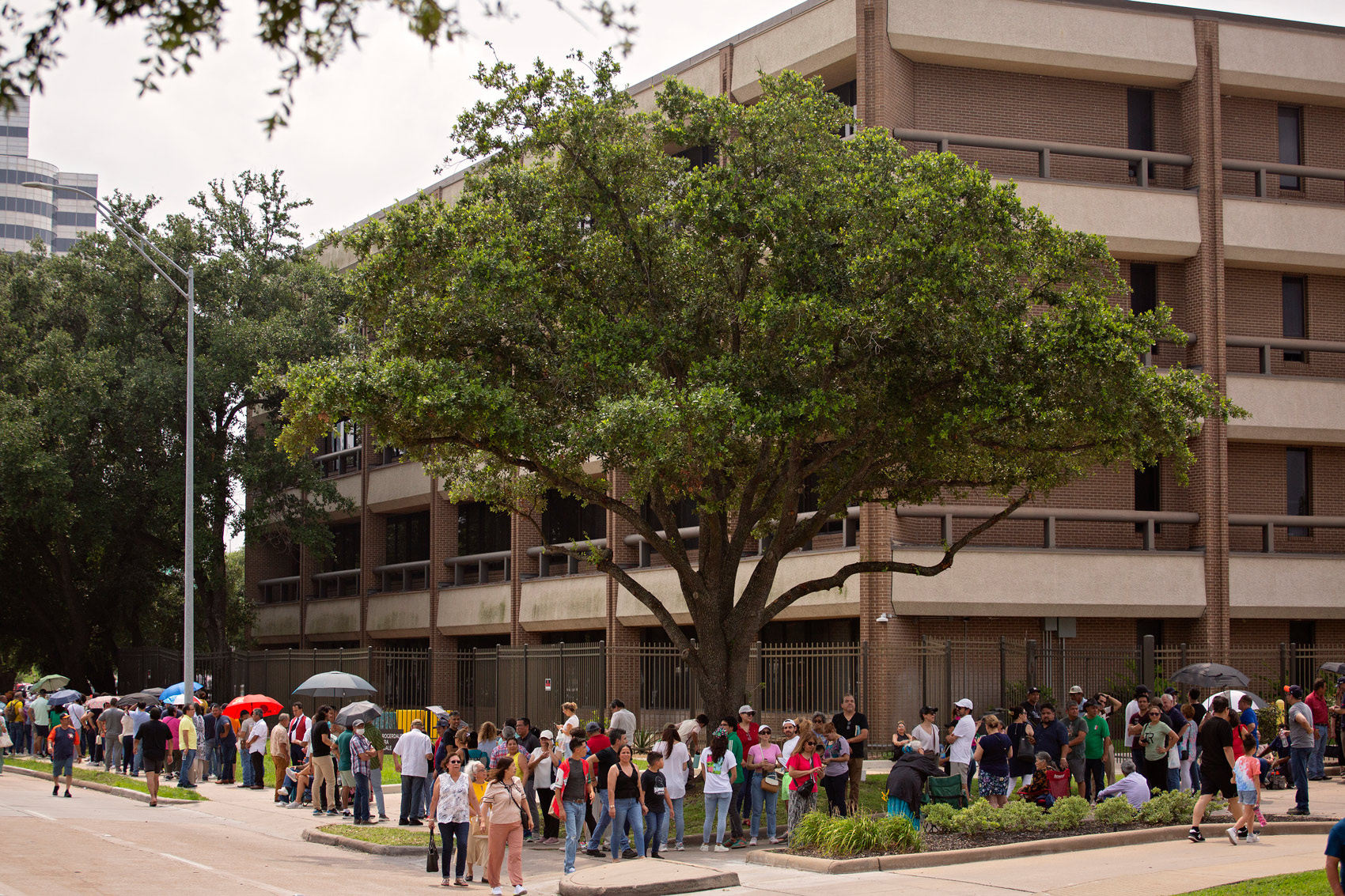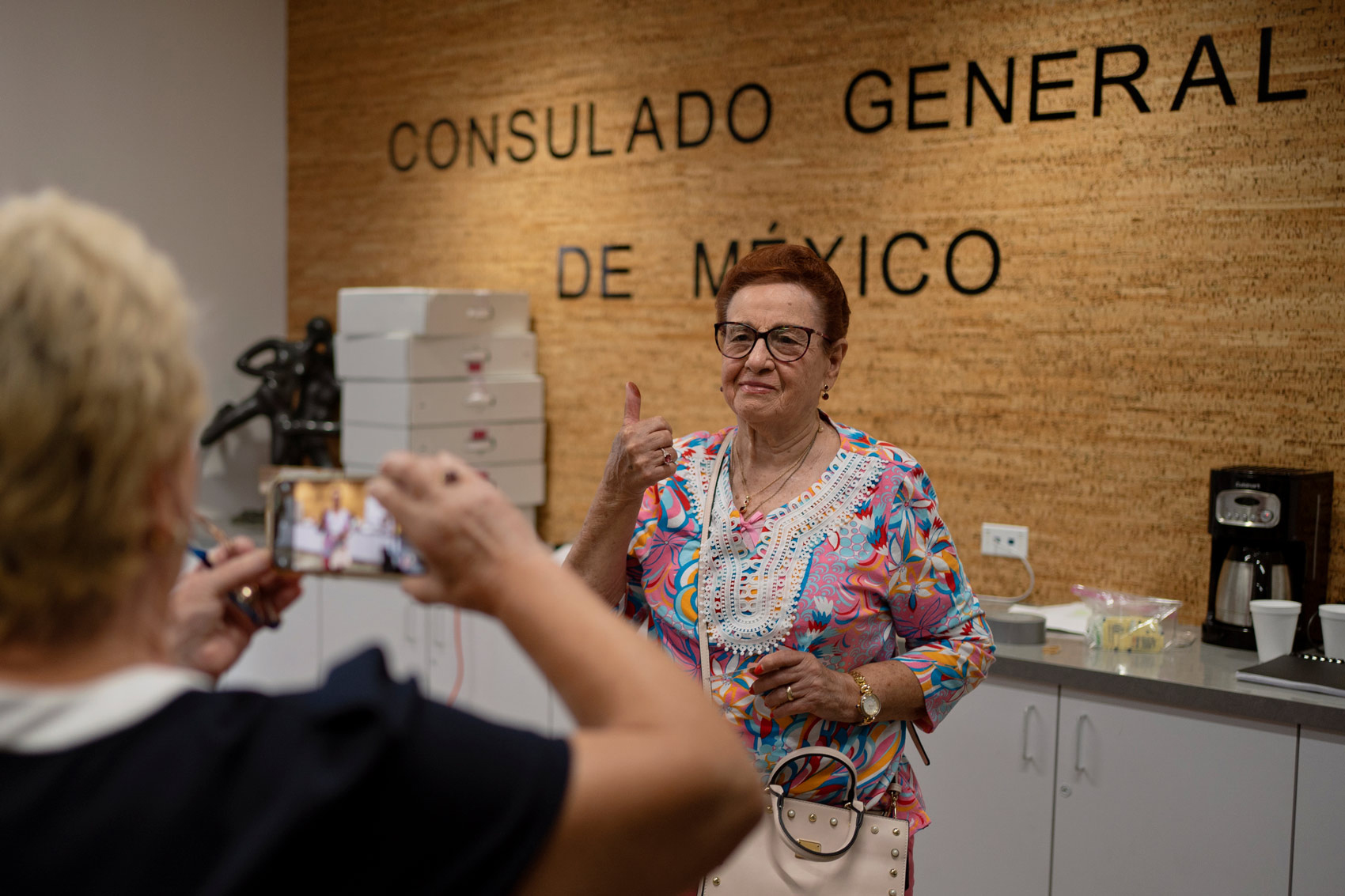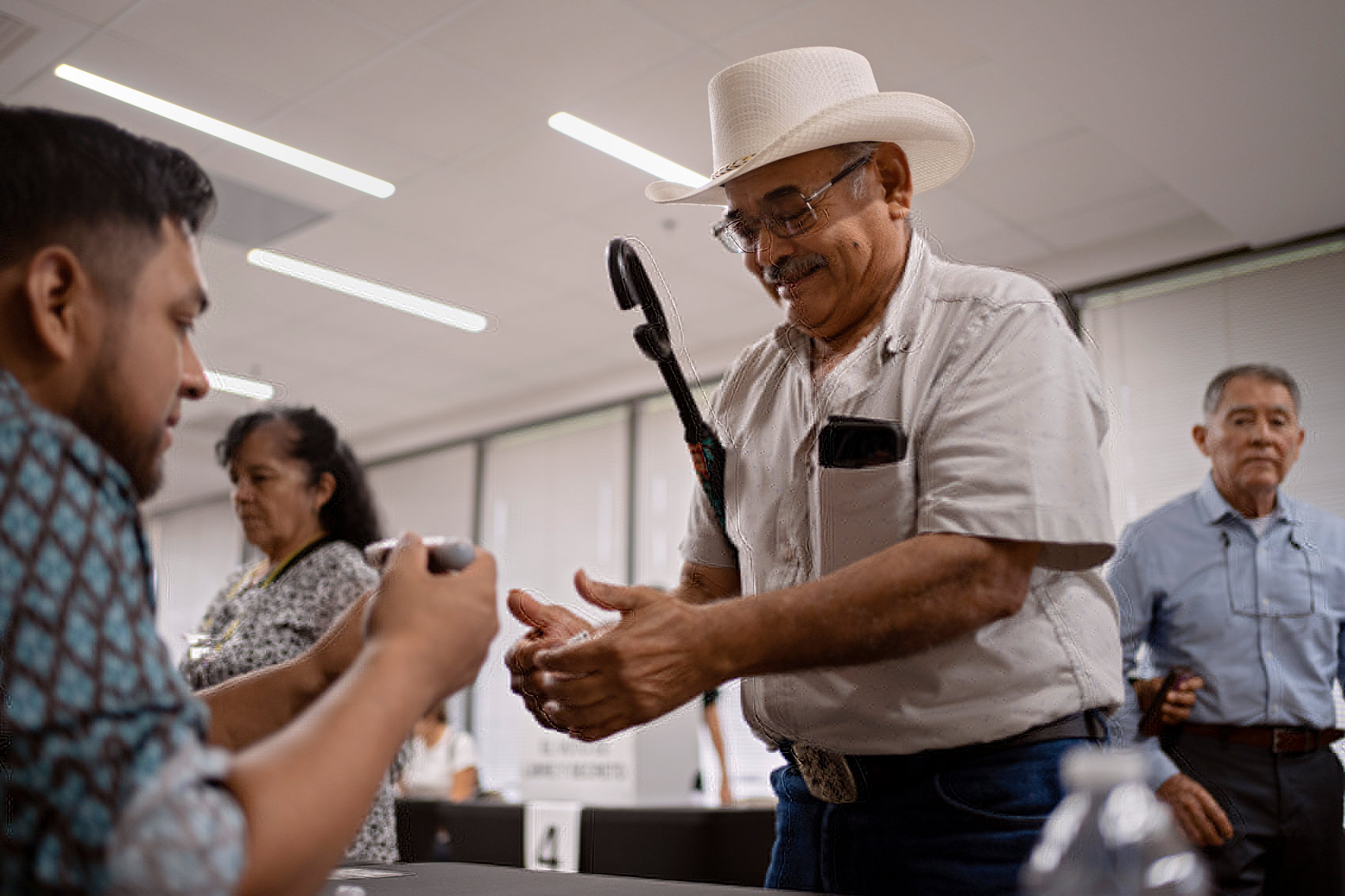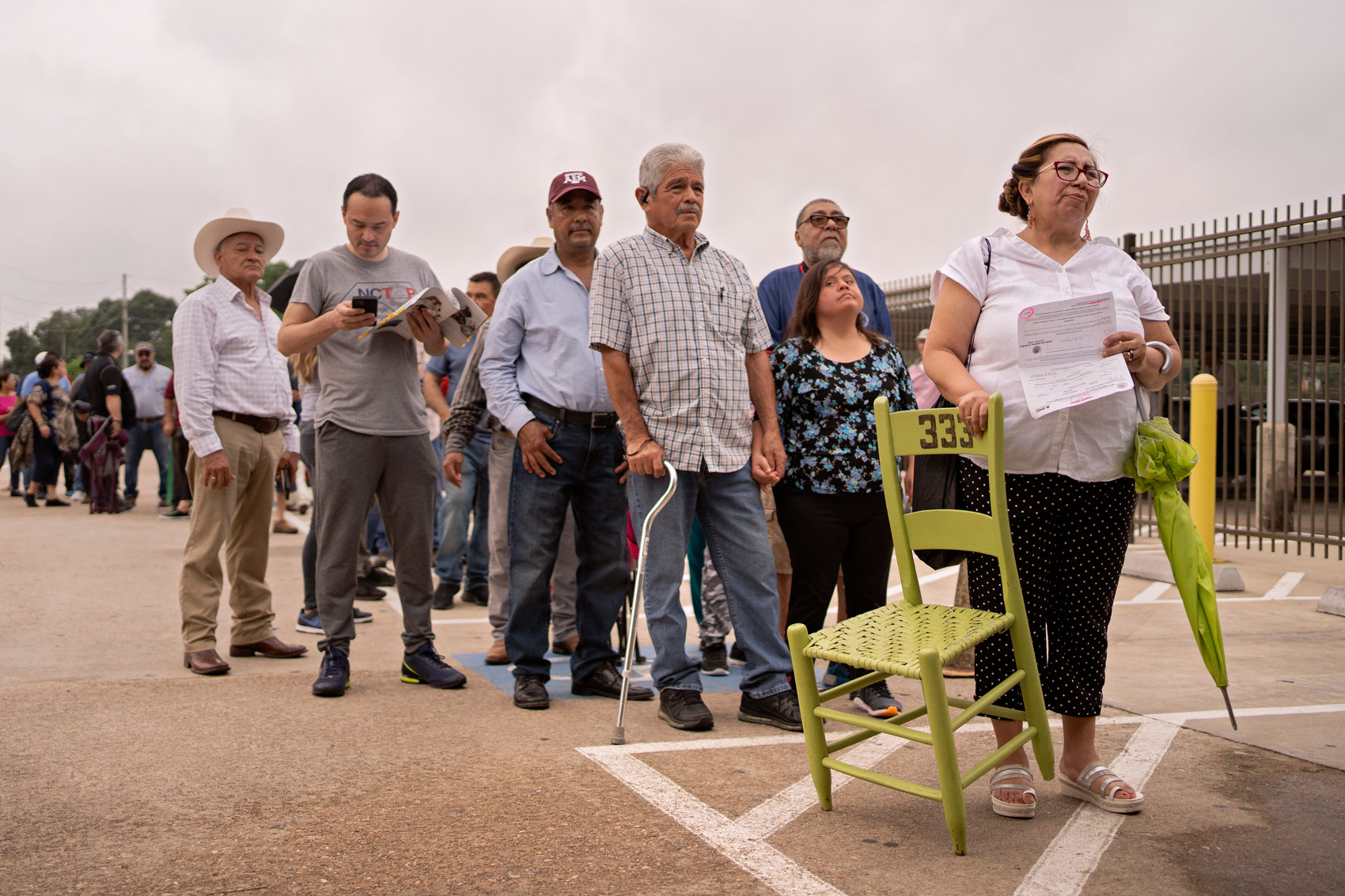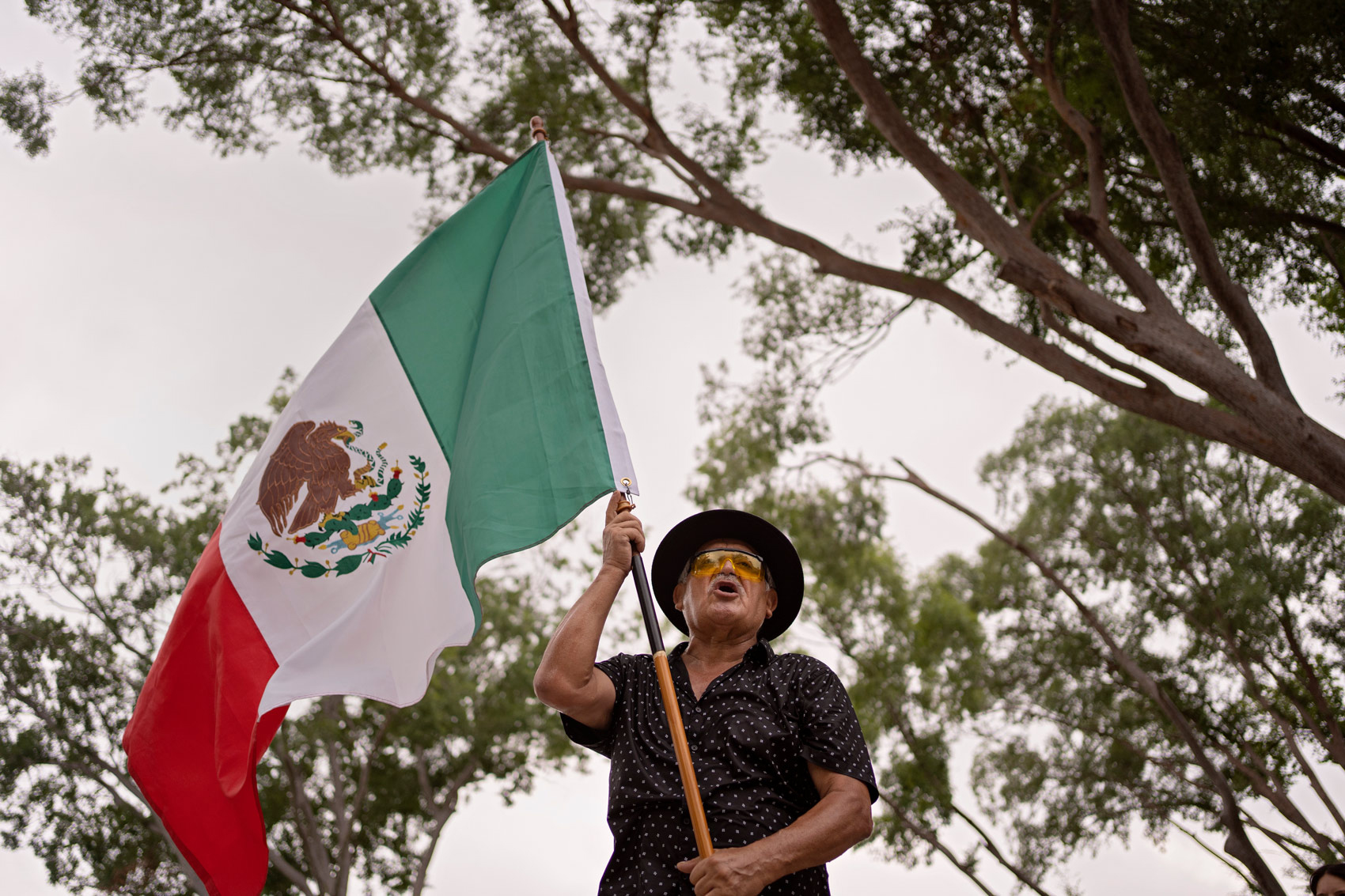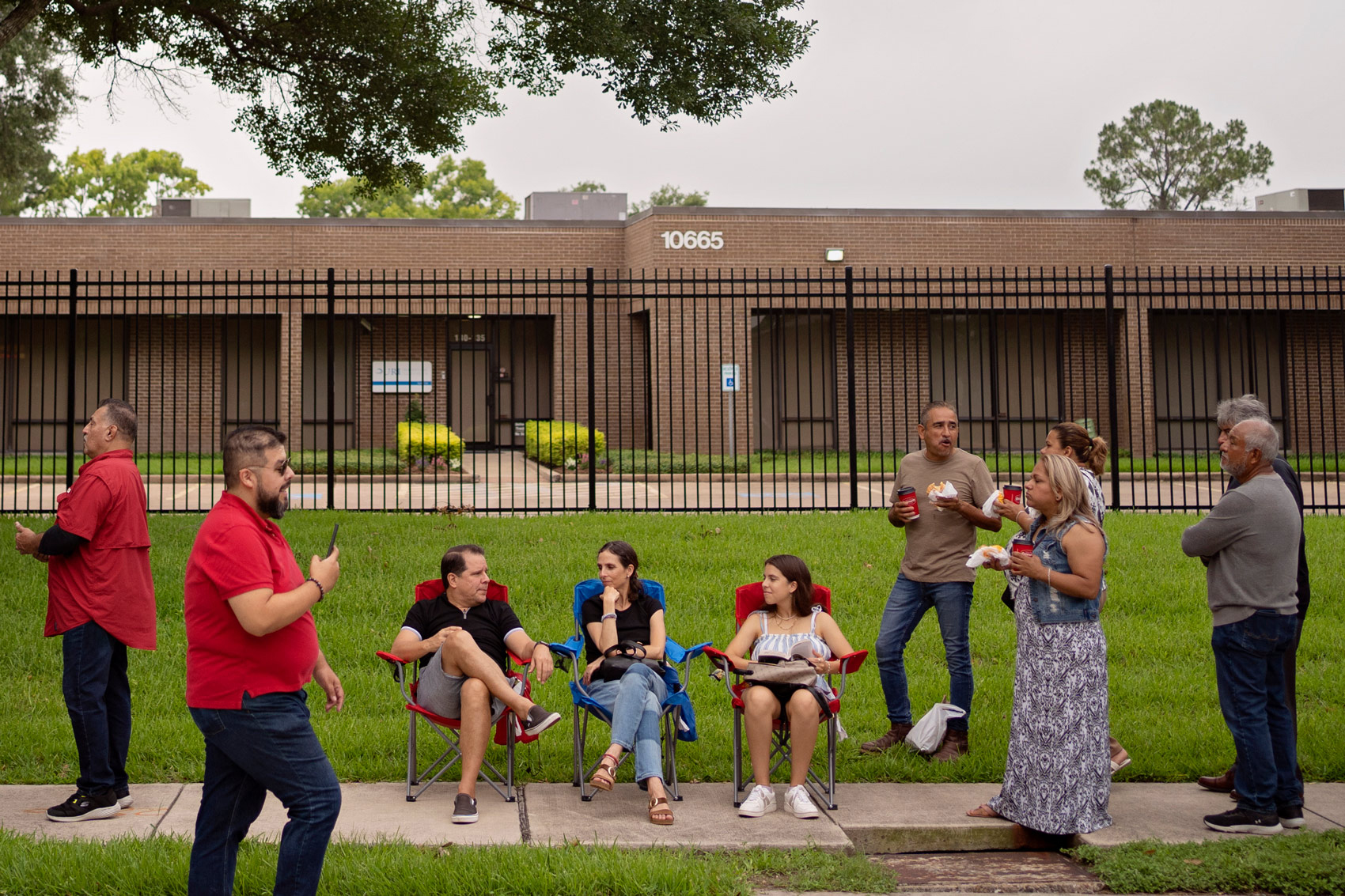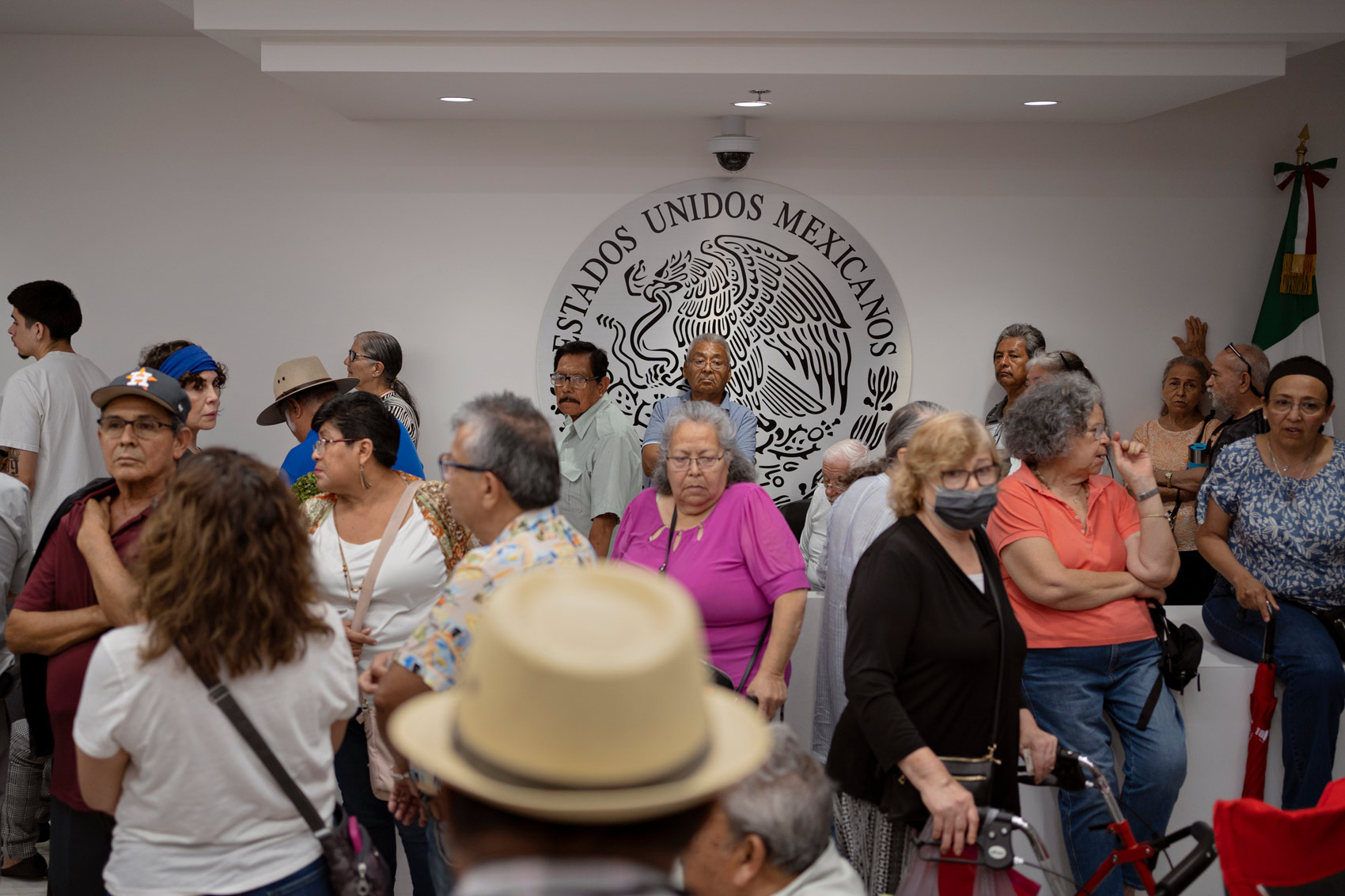|
Getting your Trinity Audio player ready...
|
After leaving Mexico at 18, 60-year-old San Juana Cervantes voted for the first time in her home country’s presidential election on Sunday, driven by a desire to see her country continue on the pathway carved by current president Andrés Manuel López Obrador.
She believes one woman is up for the challenge: Claudia Sheinbaum.
“I cast my vote for Claudia Sheinbaum because she is a person who is following the same steps as our president,” Cervantes said.
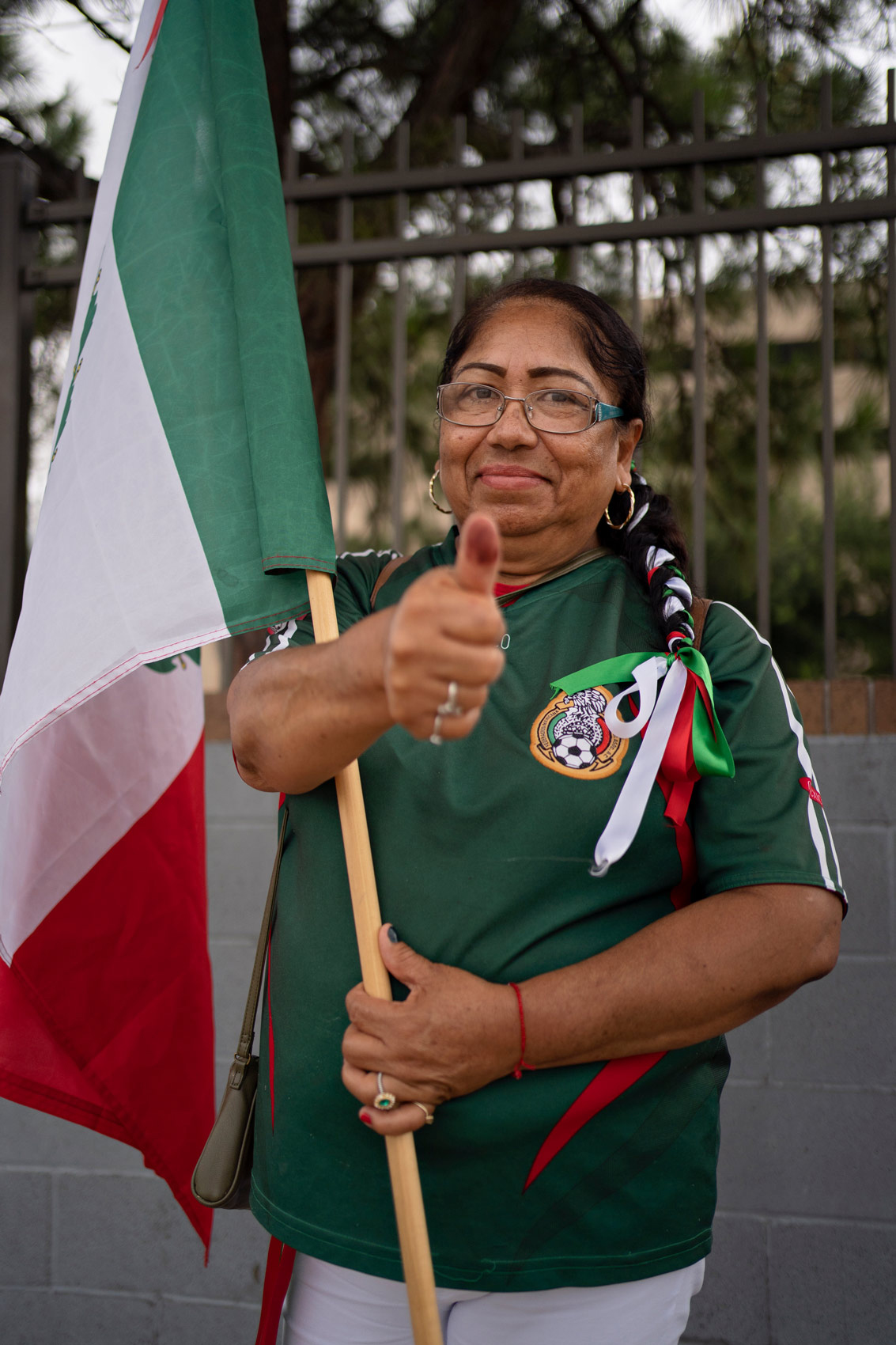
Mexican citizens living in Houston turned out in large numbers at the Mexican consulate on Sunday to vote in historic presidential elections, which saw former Mexico City mayor and Nobel Peace Prize winner Sheinbaum declared the first woman to win the presidency.
Sheinbaum, an environmental engineer from the Morena party of current president Andres Manuel López Obrador, won 58% of the vote with more than 79% of the vote counted Monday morning, defeating leading contender and tech entrepreneur Xochitl Galvez.
Mexican immigrants voting in Houston were driven by hopes of continuing the social programs and anti-corruption pledge of López Obrador, or AMLO as he is known. The 70-year-old president was ineligible for another six-year term because Mexico’s constitution prohibits reelection. Instead, longtime AMLO ally Sheinbaum is seen as the continuation of his policies.
“I want there to be a continuity of the current president,” said Joaquin Sanchez, a 53-year-old restaurant worker who has lived in Houston for 13 years and was in line by 9 a.m. on Sunday. “Because not everything is going to be resolved in six years.”
Continuing the Fourth Transformation
AMLO rose to the presidency in 2018 on an anti-corruption platform with lofty promises to lift Mexicans out of poverty with his slogan, “for the good of all, first the poor.” He has deemed his political project the “Fourth Transformation,” promising the biggest social change since the Mexican Revolution.
During his tenure, AMLO launched a universal pension program for elderly citizens, more than doubled the minimum wage, and offered cash payments to farmers and students.
These programs are a major reason for his high approval rating of more than 60 percent. Cervantes’ mother and her brother, who needs dialysis, have both received the increased government pension.
“Thanks to him, they have the help they need,” Cervantes said.
But AMLO has also been criticized for his expansion of the military’s involvement in security, a spike in homicides, and proposed constitutional reforms that could undermine democratic institutions.
Sheinbaum has promised to continue AMLO’s pension program, expand free public education, increase the minimum wage, and fight insecurity by tackling root causes of violence and strengthening the judiciary.
But some supported her opponent based on security and democratic concerns.
“For me, democracy is very important, so I think it’s important that there are changes in the government so there’s not a dictatorship,” said Maria Isabel Gomez de Orozco, a 61-year-old real estate agent who has lived in Houston for more than three decades.
“Insecurity and corruption continues everywhere, the same or worse,” said Jaime Jimemez, a 49-year-old business owner from San Antonio who traveled to Houston to vote Sunday. “Drug trafficking continues the same and he has let the drug traffickers expand and gain more control.”

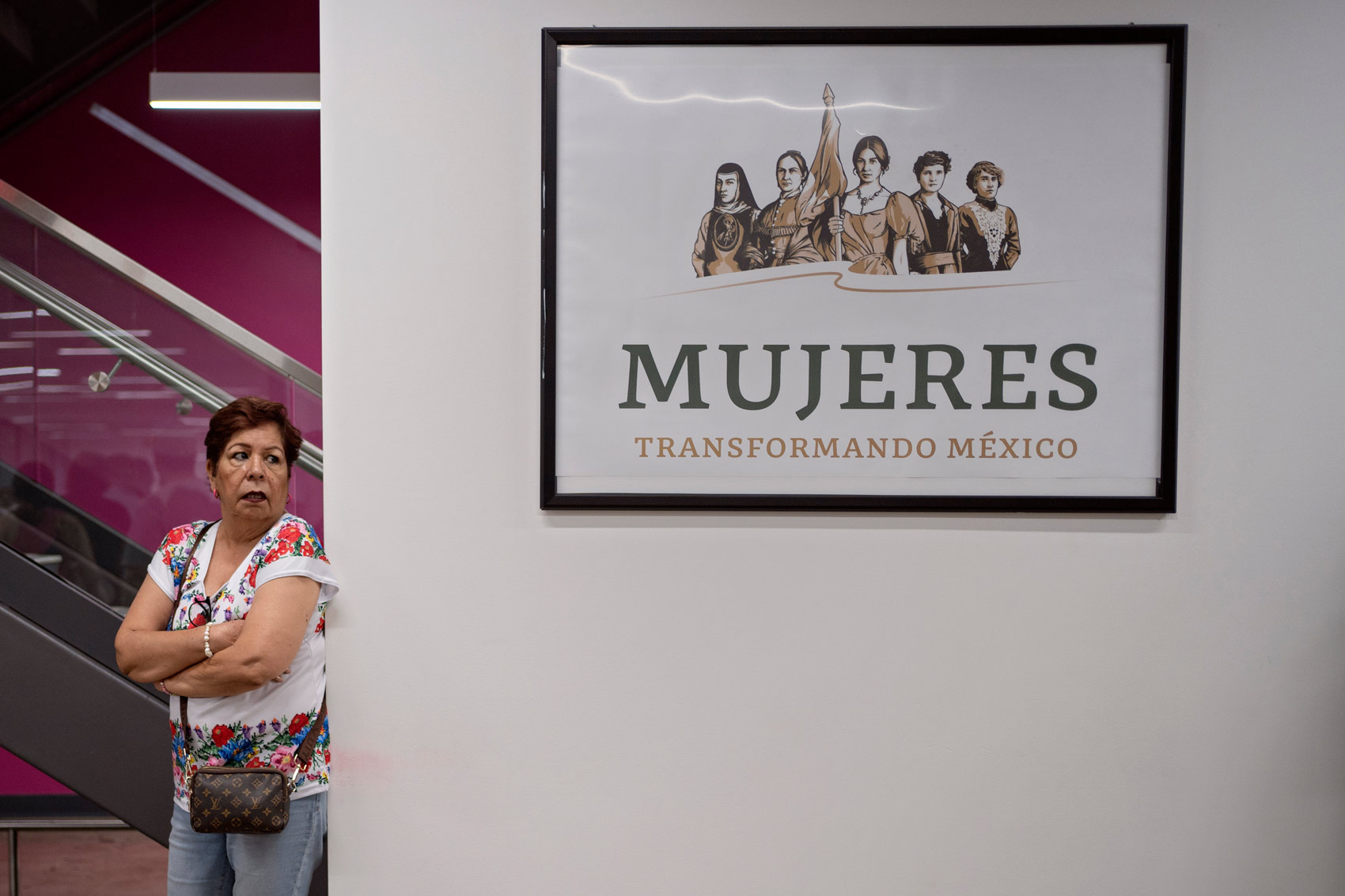
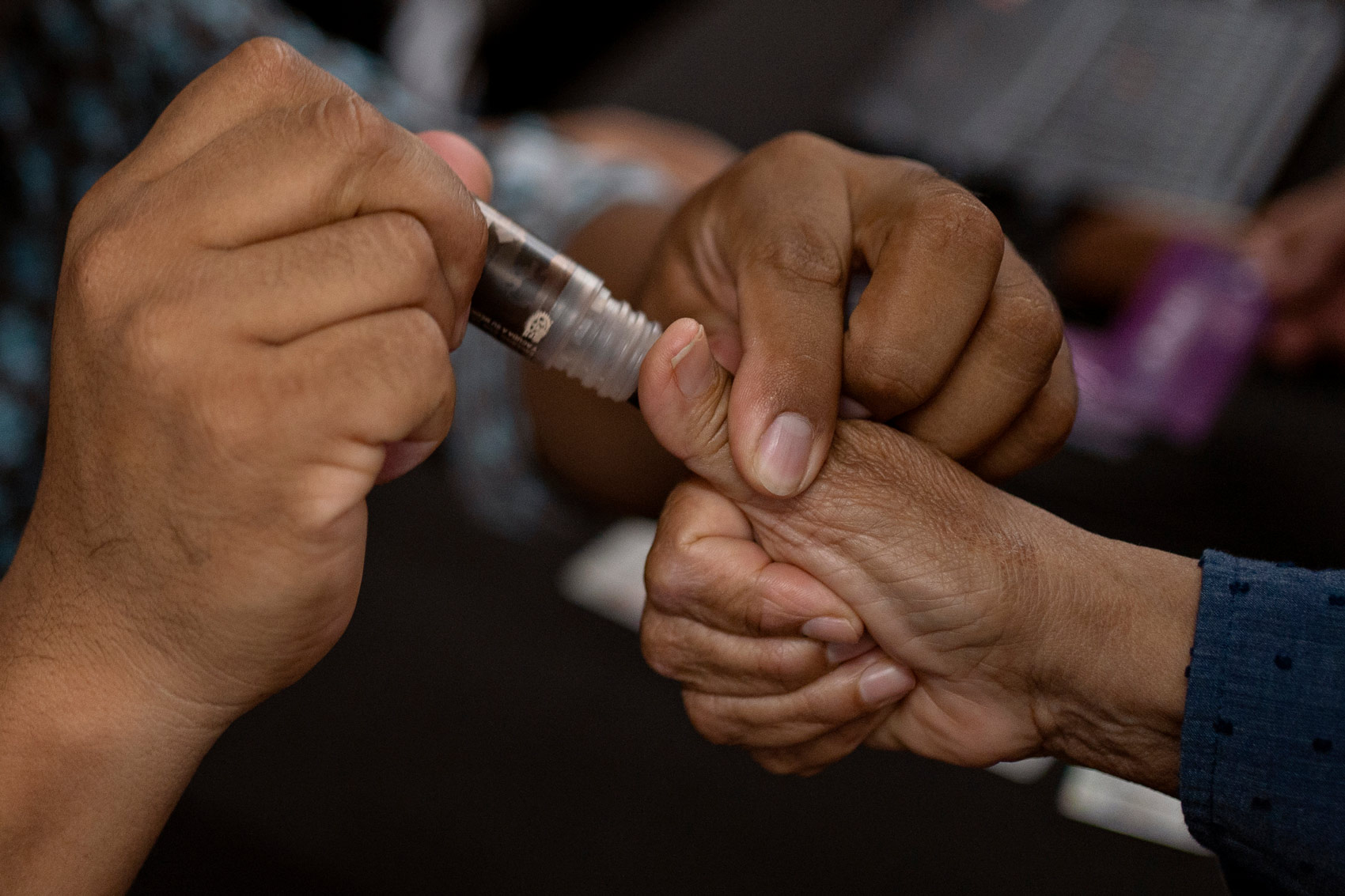
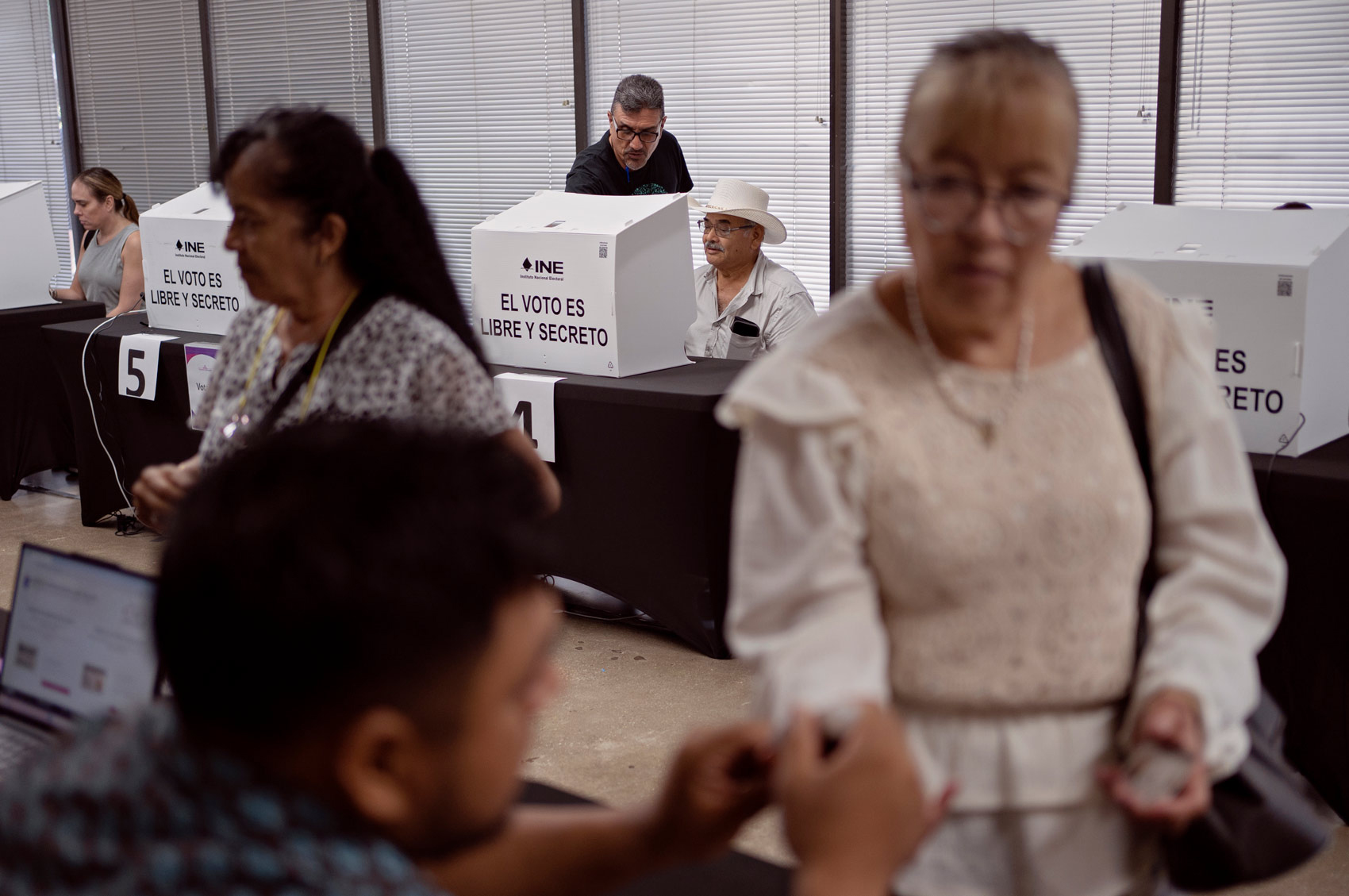
Mexican diaspora
About 1.3 million Mexican citizens living in the U.S. are registered to vote, and Houston is a major voting center. An estimated 613,000 Mexicans live in Houston, making it the fourth largest Mexican diaspora in the U.S., according to the Migration Policy Institute.
Voting abroad has increased since it was first introduced in 2006 to nearly 100,000 in the 2018 presidential election By 10 a.m., more than 1,800 people were in line outside the Mexican Consulate in Houston, according to officials, and voters were being warned of a potential ballot shortage.
Similar to voters living in Mexico, political support for the candidates tends to split along socioeconomic lines.
“López Obrador and Morena as a political party is particularly popular among more socioeconomically disadvantaged populations in Mexico but also in the United States,” said Omar Garcia-Ponce, assistant professor of political science at George Washington University.
“For many of those individuals, what they would like to see is the Mexican government making a significant effort in engaging in a bilateral agreement with the US to devise a path toward legal migration status,” he added.
AMLO has credited the country’s diaspora as a key driver of economic growth, because of the millions of dollars they send to their families each year, and has facilitated these payments through a debit card called Finabien. Sheinbaum has promised to continue and expand this program. Yet, expanding legal pathways for Mexican immigrants has become a more politically contentious issue in recent years as immigration reform has become a polarizing issue in the U.S.
Despite the praise for Mexicans sending money back home, the government has failed “to advance the rights of Mexicans in the United States and to provide good services,” according to Guadalupe Correa-Cabrera, political analyst and professor at the Schar School of Policy and Government at George Mason University.
“Politicians, no matter what party we're talking about, have not done enough to address the needs of the Mexican diaspora in the United States,” Correa-Cabrera said. “They have a huge debt with the people who send so much money.”
For the Mexican migrant population in the U.S., there is some hope that a new administration will prioritize helping them obtain work permits and legal residency in the U.S.
Leonel Martinez, a 61-year-old construction worker who has lived in Houston for 25 years, supported Sheinbaum and her social programs, but thinks the Mexican government should do more for immigrants in the U.S.
“They need to support us, because sometimes the people here don’t want us,” Martinez said.
Sanchez, the restaurant worker, asked the new government to prioritize legal work permits and driver’s licenses for Mexican immigrants in the U.S.
“I think that for immigrants who are here without documents, they should support the opportunity for us to get a driver’s license so we don’t live in fear,” Sanchez said.
Cervantes called on Sheinbaum to carry out her proposals, supporting Mexicans inside and outside of Mexico.
“Claudia has good intentions to continue helping the people and working for the people,” Cervantes said. “Let’s hope she doesn’t let us down.”


